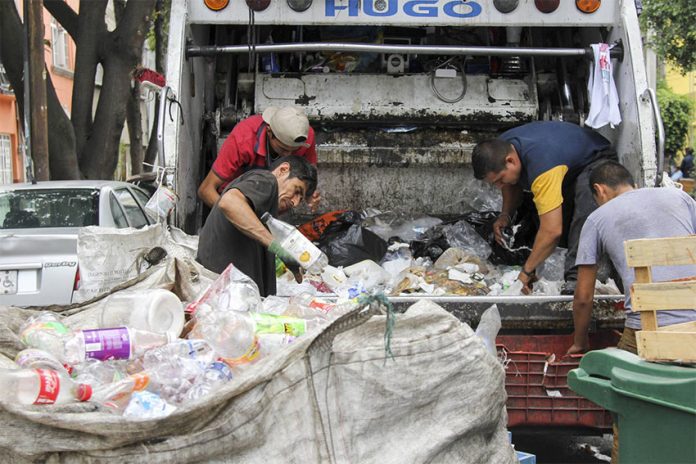More than 100,000 tonnes of trash are generated in Mexico every day but less than 10% is recycled, leaving ample room for the recycling industry to grow.
According to 2015 data from the Secretariat of the Environment, 102,895 tonnes of solid waste are generated across the country on a daily basis.
Just seven states – Mexico City, México state, Jalisco, Veracruz, Guanajuato, Tamaulipas and Nuevo León – produce more than half that amount.
Just under 84% of the garbage is collected but only 9.63% of that amount is recycled, meaning that the vast majority of Mexico’s trash ends up in landfills.
Alejandro Anaya, vice president of Industrias VQ, a company that uses recyclables to make a range of products including poly-aluminum roofing, shoe soles and paper, believes that Mexico’s low recycling rate can be attributed to a lack of “recycling culture” among the population.
Mexico lags well behind the world’s best recyclers such as Germany, Austria, South Korea and Wales, where more than 50% of all waste is recycled. The United States recycles 35% of its waste, according to a recent report in the newspaper The Guardian.
Anaya told the newspaper Milenio that the recycling industry would like to see recycling rates double in the short term but he explained that achieving that depends on people making the effort to separate their trash.
“What we want . . . is for people to become more aware of the situation we’re experiencing so that the collection of material is easier,” he said.
Anaya said that one way people can ensure that their recyclables are repurposed is by giving them directly to “small collectors.”
If more people do that, more people will start working as collectors and the recycling chain will be strengthened, he said.
Among Mexico’s 32 federal entities, Querétaro currently sets the standard in recycling practices.
Of 241 recycling centers across the country, 51 – just over one in five – are in the small Bajío region state. Querétaro also leads the country for waste sorting, separating 57% of all trash generated.
Jalisco ranks second both for the number of recycling centers – 45 – and waste sorting, separating 40% of its trash.
México state, the country’s most populous, ranks fifth for sorting yet only 15% of trash is separated, underscoring the potential for recycling growth across the country.
Anaya said that recyclables such as plastic and glass bottles and paper and cardboard packaging can be used in “several industries.”
“Construction, for example, or in making paper and cardboard,” he said, explaining that Industrias VQ also makes toilet paper, napkins and hand towels out of recyclables.
Anaya added that it is a common misconception that products made out of recyclables should be cheaper than those made out of non-recycled materials.
“People believe that a recycled product has to be cheaper because [its content] was already used in something else. But they don’t see the supply chain that’s behind [the manufacturing process]. It’s not at all easy [to collect recyclables] mainly because of the [lack of recycling] culture . . .” he said.
Source: Milenio (sp)
